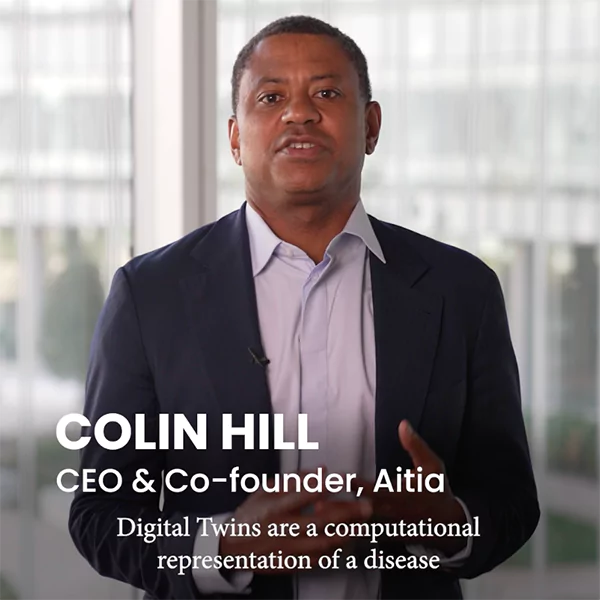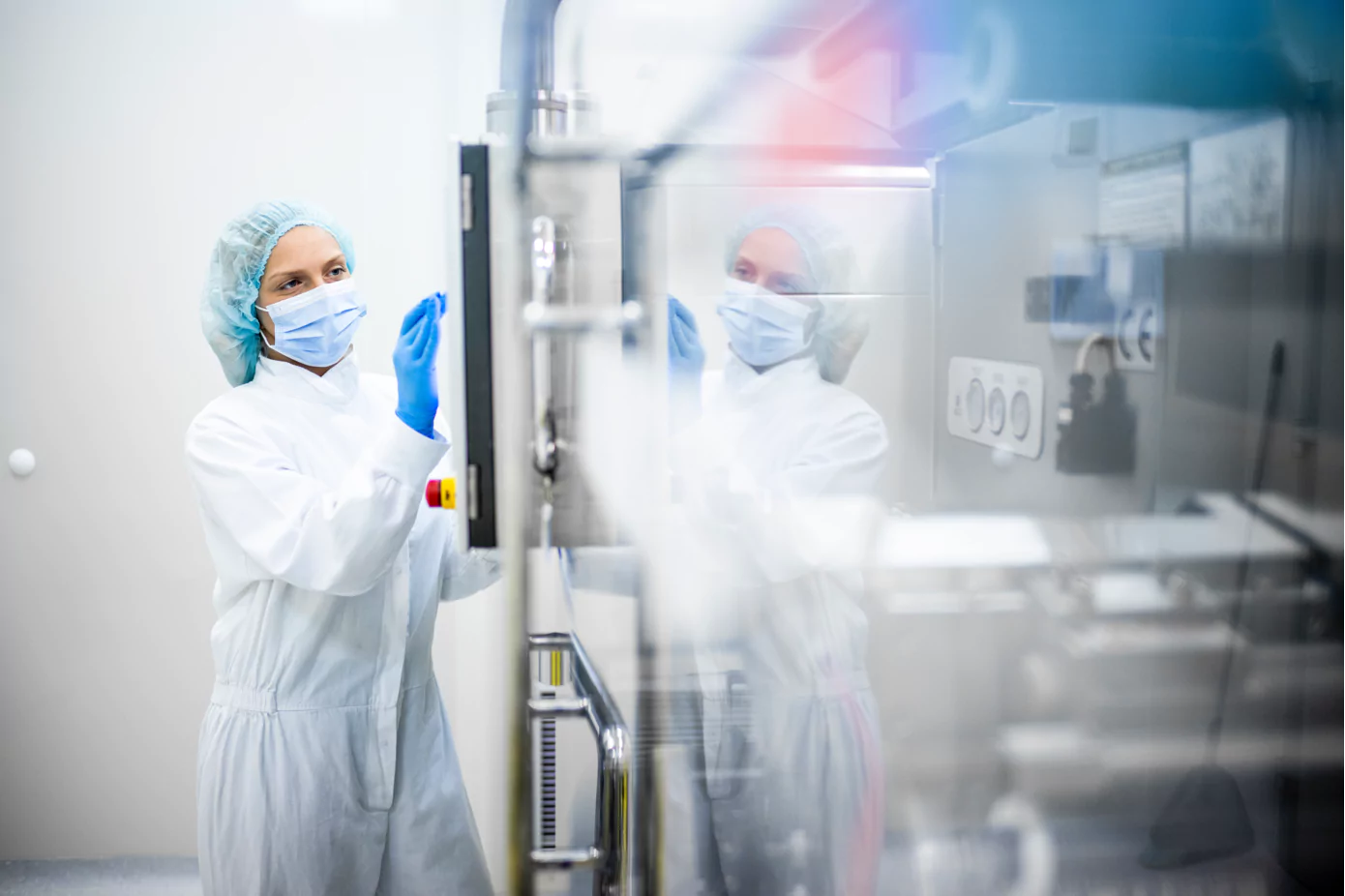Using Digital Twins to better understand diseases and their changes
These digital copies can reproduce the mechanical, chemical, electrical, and organic processes that occur within the body. For instance, they can highlight causal relationships and connections between the different organs.
They also simulate the behavior of drugs and reveal what works and what does not work at the individual patient level. Digital twins have a real value added for discovering new therapeutic targets and identifying associated biomarkers. Thanks to this technology, pharmaceutical industry players hope to provide patients with increasingly personalized therapeutic solutions.
One of this technology’s pioneers, the US company Aitia has launched “Gemini,” its proprietary Digital Twins model. Colin Hill, CEO and co-founder, presents the stakes involved with this technology for health.


What is a biomarker?
A biomarker is a measurable biological characteristic relating to a normal or pathological process. A biomarker can be measured based on different biological fluids, such as blood, as well as patient biopsies (tissue samples). Biomarkers can also be identified using imaging techniques (scanners, radiography). They make it possible to track or predict the product’s efficacy and safety during development or to select responder patients2.
What are this technology’s benefits for patients?
By combining AI technologies and digital twins with industrial capabilities, the aim is to accelerate research and development phases as well as the process for identifying new targets.
This technology offers a range of benefits such as:
Aitia in brief
Aitia is a Boston-based company specialized in the development and application of causal AI and Digital Twins to discover the next generation of therapies for patients, by creating digital replicas of human diseases based on multi-omic patient data and causal AI.
Gemini Digital Twins are being used to discover novel therapies and accelerate R&D in a few diseases, including multiple myeloma, prostate cancer, Alzheimer’s disease, Parkinson’s disease and Huntington’s disease. Several other digital twins are in development in the fields of oncology, neurodegeneration and immunology.
“We believe our Gemini Digital Twins, which are created from large quantities of multi-omic patient data and causal AI, have the potential to bring significant disruption to the field of oncology and pave the way for breakthrough discoveries.”
Multi-omic data: Data mapping the characteristics of all 37,000 billion human cells3
The “multi-omic” approach enables omic data to be analyzed and compared simultaneously. These data sets are “omes”: genome, proteome, transcriptome, epigenome, metabolome and microbiome. Objective: better understand the complexity of human cells and their mechanics, with a focus on developing ultra-personalized therapeutic solutions, particularly for cancer4.
In May 2023, Aitia and Servier signed a multi-year agreement which aims to discover, validate and strives to develop novel drug targets and drug candidates for pancreatic cancer, the world’s 7th most deadly form of cancer5.
This partnership is built around AitiaDigital Twins combined with Servier’s industrial expertise.
Our latest news
Precision medicine: A therapeutic revolution geared towards patients
Will synthetic control arms revolutionize clinical trials?
Ultrasound technologies deliver medicine directly to the brain
[1] Article Le jumeau numérique d’un humain en santé : https://journals.openedition.org/cdst/7170
[2] Acobiom : https://www.fda.gov/drugs/biomarker-qualification-program/about-biomarkers-and-qualification#what-is / https://www.niehs.nih.gov/health/topics/science/biomarkers
[3] https://www.science-et-vie.com/article-magazine/quest-ce-que-la-multiomique-reel-espoir-contre-le-cancer
[4] NIH : https://www.ncbi.nlm.nih.gov/pmc/articles/PMC4959511/
[5] International Agency for Research on Cancer, Globocan 2020, WHO / Les facteurs de risque du cancer du pancréas | Santé.fr (sante.fr)
